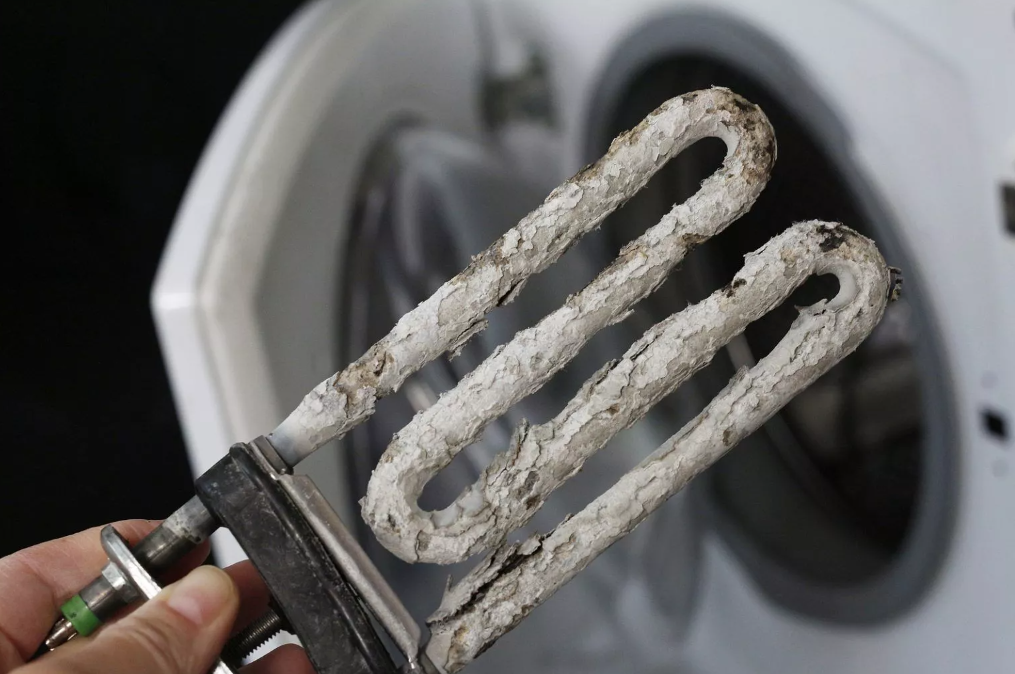
The role of the water filter in maintaining home appliances
The importance of a water filter is not limited to the quality of the water being used, or the many health problems you can avoid by installing a water filter in your home. The role of the water filter also extends to maintaining home appliances from some recurring problems, which we present in our article out of concern for us in water care to provide all solutions and services related to water quality.
Hard water and water heater cleaning
Consumers generally do their research when it comes to purchasing devices. Not only are they looking for the best price, but they are also looking for efficiency and how expensive the unit is to run. But what about the water running through your devices?
Hard water is the enemy of appliances. In some areas, an abundance of minerals such as magnesium, iron, and calcium build up in the plumbing system and cause scale build-up. When you have hard water issues, the evidence is everywhere. Mineral deposits on glassware and shower doors and even stains in sinks and sinks. But their effect occurs on pipes long before they appear on surfaces.
Anti-scaling devices?
If you have hard water, you need to be more vigilant about the maintenance of your machine. For maintaining home appliances you have to use anti-scaling solutions. When such an amount of minerals flows and builds up in a home’s plumbing system, it shortens the life of the appliance.
For best performance and to avoid costly plumbing and appliance repairs, a water filter or water softener replacement is your best option.
These water-softening systems help filter out an abundance of minerals that can harm your appliances. To provide the best anti-scale for water heaters, they must be maintained and rinsed on a regular basis.
How to clean a water heater
To control the buildup of mineral deposits so that your water heater operates at its most efficient level, it should be flushed every one to three years depending on the manufacturer’s recommendation, the amount of water you use, and the concentration of hard water in its source.
- If the water heater is electric, cut off the power supply and turn off the cold water supply.
- Turn on either the pressure valve or the faucet closest to the water heater.
- Connect a garden hose to the valve at the bottom of the heater.
- Run the other end of the hose to a place where it can drain safely (or into a bucket if you’ve turned off the heater to allow the water to cool overnight).
- Open the valve to allow water to flow from the heater and the relief/pressure valve to allow water to flow slowly and steadily while being careful with hot water.
- After a few minutes of rinsing, allow a sample of water to flow into a test bucket and let sit for about a minute for any sediment to settle.
- Let the water in the bucket stand undisturbed for a minute and see if the water runs clear or if any sand-like material settles to the bottom.
- If the water is clear and you don’t notice any sediment, you can close the valve, remove the hose, and continue.
- If the water changes color or you see sediment at the bottom of the test bucket, continue draining until the water is clear. (You may need to partially refill your water heater if you still notice sediment and the heater is empty). Run it until it becomes clear.
- Close the drain and remove the garden hose.
- Close the pressure relief valve if it is open.
- Turn the water supply back on and allow the tank to fill.
- After refilling the tank, slowly reopen the pressure relief valve to release excess air and then close it again.
- Close the water heater drain.
- Open the hot water tap in the bathtub and wait for a full flow of water.
You can keep your home up to “anti-scale standards” through ongoing preventative maintenance of water-powered appliances and the use of an alternative water purifier. Do you need to know more about hard water and its damage?
Reduce potential plumbing problems
Metals, heavy metals, and chemicals in your water can corrode and damage pipes and appliances that use the water. By eliminating these potentially harmful factors at the source. You can extend the life of pipes, water heaters, and other home appliances.
























